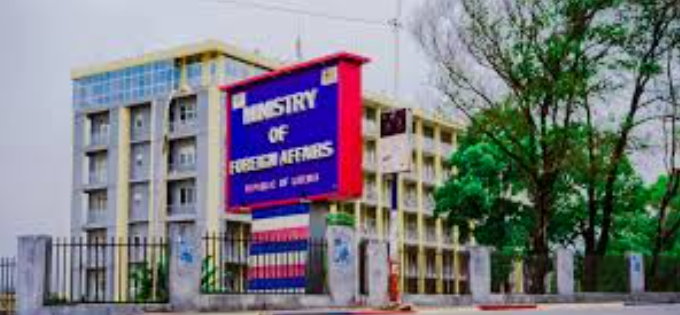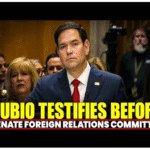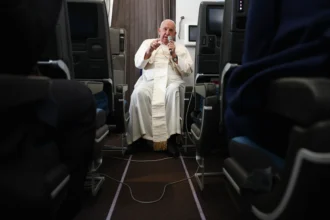By Emmanuel Sikena
Abidjan, Côte d’Ivoire – In a significant policy shift, the United States is placing trade and investment at the forefront of its engagement with Africa, moving away from a primarily aid-based approach. This new strategy, unveiled at the recent Africa CEO Forum in Abidjan, outlines a six-point plan designed to deepen commercial ties and stimulate long-stagnant U.S.-Africa trade relations.
Troy Fitrell, Senior Bureau Official leading the U.S. Department of State’s Bureau of African Affairs, announced the strategy at the inaugural American Chambers of Commerce (AmCham) summit, emphasizing a move “from assistance to partnership.” He even hinted at President Trump hosting a U.S.-Africa Leaders’ Summit later this year, focused exclusively on trade and investment. This would mark a return to a summit format abandoned by the Trump administration but revived under President Biden.
The six-point strategy prioritizes:
- Commercial Diplomacy: Making deal facilitation a core focus for U.S. embassies.
- Trade Reforms: Working with African governments to remove tariff and non-tariff barriers.
- Sustainable Infrastructure: Backing projects that attract private investment.
- U.S. Trade Missions: Expanding these across the African continent.
- Export Linkages: Connecting more U.S. exporters to African markets.
- Trade Promotion Tools: Reforming these to be more responsive and risk-tolerant.
“The Africa of today is not waiting on handouts,” Fitrell stated, emphasizing that “Trade, not aid…is now truly our policy for Africa.”
The Africa CEO Forum, themed “A New Public-Private Deal,” brought together over 900 CEOs, including several African heads of state such as Côte d’Ivoire’s Alassane Ouattara, South Africa’s Cyril Ramaphosa, and Senegal’s Bassirou Diomaye Faye. Discussions largely centered on harnessing the private sector and strengthening intra-African trade, particularly through the African Continental Free Trade Area (AfCFTA).
Liberia’s Absence Raises Questions
While the forum buzzed with discussion of trade opportunities and U.S. engagement, Liberia’s absence from both the AmCham summit and the Forum sessions raised questions. As the United States gears up for a high-level, trade-focused U.S.-Africa Leaders’ Summit later this year, the critical question is: Where does Liberia fit in this new, commercially driven model?
Emerging Potential for Liberia
Despite its apparent lack of representation in Abidjan, Liberia possesses potential to benefit from the U.S.’s recalibrated approach. The proposed Liberty Corridor, connecting Nimba County to Buchanan Port, aligns perfectly with Washington’s call for “bankable” infrastructure projects that leverage private investment. This rail corridor could significantly boost exports of iron ore, agricultural products, and energy.
Liberia’s burgeoning community of “Made-in-Liberia” entrepreneurs, particularly in cocoa, coffee, textiles, and shea-based cosmetics, are also poised for export growth, especially to African diaspora markets in the U.S. Strategic support in trade standards, branding, and logistics could unlock U.S. financing for these SMEs.
The country’s vast, underutilized agricultural base presents another significant opportunity. With U.S. prioritizing investment in sectors such as agribusiness and logistics, Liberia’s fertile land and reliance on food imports make it a prime target for targeted U.S. private investment.
Furthermore, the Forum highlighted the growing importance of tourism and culture as export-worthy sectors. Liberia’s surf coasts, historical landmarks, and cultural heritage, when properly developed and marketed, could become sought-after destinations.
AfCFTA: A Pathway for Engagement
The AfCFTA presents an opportunity for the U.S. to support regional infrastructure and trade-enabling systems, benefiting the entire continent. Liberia’s strategic location along the West African coast could position it as a key logistics hub. However, progress on AfCFTA implementation has been slow, and trade facilitation remains a challenge.
“In an era marked by economic and geopolitical uncertainty, Africa must unleash the power of its private sector to chart its own course,” said Amir Ben Yahmed, founder of the Africa CEO Forum.
President Ramaphosa echoed this sentiment, “Only a structured and sustained dialogue between governments and businesses will unlock Africa’s full potential.”
With the U.S. signaling a clear shift towards trade-focused engagement, Liberia’s window of opportunity is now open. Seizing it will require deliberate action by the government, the business community, and diaspora actors to ensure Liberia is ready to deal. The message from Abidjan was clear: the U.S. is ready to trade. The question now is: Is Liberia ready to deal?









